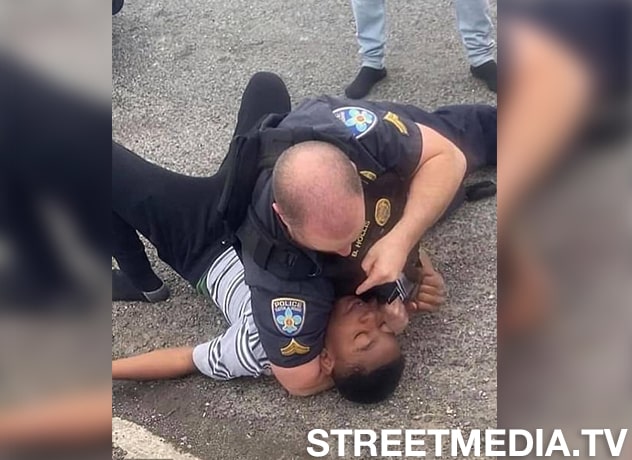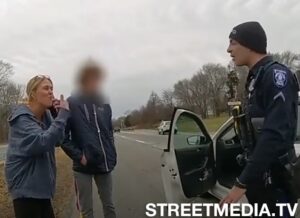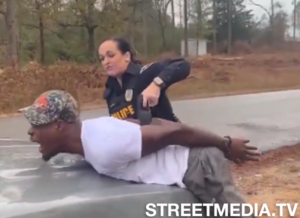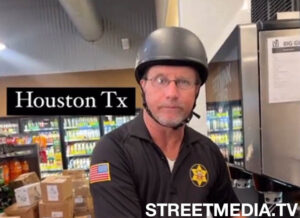Baton Rouge Officer Accused of Violently Arresting Innocent 13-Year-Old Boy

In recent news, a Baton Rouge police officer has been accused of brutally arresting a 13-year-old who was mistakenly identified and not the real suspect. The incident, which was captured on video, has sparked outrage and calls for accountability.
The incident took place when the police were responding to a call about a disturbance at a nearby house. The suspect was described as a tall, skinny Black male, wearing a grey shirt and black shorts. When the police arrived, they saw a 13-year-old Black male walking down the street with a basketball wearing a white shirt and black pants. The police officers, without properly verifying the suspect’s identity, immediately tackled and handcuffed the boy, who was crying and begging for his mother.
The video of the incident shows the police officer slamming the boy onto the ground, kneeing him in the back, choking him by the neck, and handcuffing him with excessive force. The officer can also be heard using profanity and threatening the boy. After several minutes, the police officers realized that they had the wrong suspect and released the boy. The real suspect was later arrested at a different location.
The Baton Rouge police department has since launched an investigation into the incident, and the officer involved has been placed on administrative leave. However, community members and civil rights groups are calling for more action, including the officer’s termination and criminal charges.
The incident has reignited discussions about police brutality and racial profiling in the United States, particularly in communities of color. Mistaken identity arrests, particularly involving minors, can have serious consequences and can cause long-lasting trauma. It is important for law enforcement agencies to properly train their officers on the use of force and proper identification procedures.
This incident is just one example of a larger issue in the United States of police misconduct, particularly towards marginalized communities. According to data from Mapping Police Violence, Black people are three times more likely to be killed by police than white people. Additionally, police brutality and misconduct disproportionately affect Black, Indigenous, and people of color (BIPOC) communities, leading to a lack of trust between these communities and law enforcement.
Calls for police reform and accountability have grown louder in recent years, with activists and community members demanding changes such as demilitarizing police departments, redirecting funding towards social services, and holding police officers accountable for misconduct. The Baton Rouge incident serves as a reminder of the importance of police accountability and reform to prevent future incidents of police brutality and misconduct.
It is crucial that law enforcement agencies work to build trust and relationships with the communities they serve, particularly communities of color. This can include implementing community policing programs, increasing transparency and accountability, and engaging in meaningful dialogue with community members. The incident in Baton Rouge underscores the need for ongoing work towards a more just and equitable criminal justice system for all.



